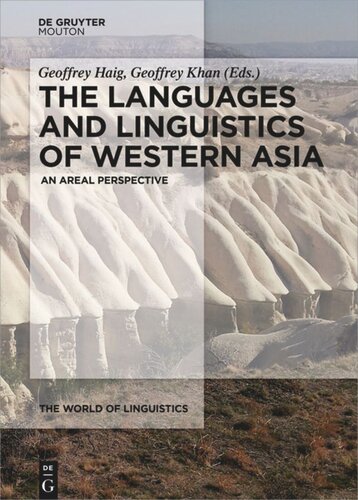

Most ebook files are in PDF format, so you can easily read them using various software such as Foxit Reader or directly on the Google Chrome browser.
Some ebook files are released by publishers in other formats such as .awz, .mobi, .epub, .fb2, etc. You may need to install specific software to read these formats on mobile/PC, such as Calibre.
Please read the tutorial at this link: https://ebookbell.com/faq
We offer FREE conversion to the popular formats you request; however, this may take some time. Therefore, right after payment, please email us, and we will try to provide the service as quickly as possible.
For some exceptional file formats or broken links (if any), please refrain from opening any disputes. Instead, email us first, and we will try to assist within a maximum of 6 hours.
EbookBell Team

5.0
60 reviewsThe languages of Western Asia belong to a variety of language families, including Indo-European, Kartvelian, Semitic, and Turkic, but share numerous features on account of being in areal contact over many centuries. This volume presents descriptions of the modern languages, contributed by leading specialists, and evaluates similarities across the languages that may have arisen by areal contact.
It begins with an introductory chapter presenting an overview of the various genetic groupings in the region and summarizing some of the significant features and issues relating to language contact. In the core of the volume the presentation of the languages is divided into five contact areas, which include (i) eastern Anatolia and northwestern Iran, (ii) northern Iraq, (iii) western Iran, (iv) the Caspian region and south Azerbaijan, and (v) the Caucasian rim and southern Black Sea coast. Each section contains chapters devoted to the languages of the area preceded by an introductory section that highlights significant contact phenomena. The volume is rounded off by an appendix with basic lexical items across a selection of the languages.
The handbook features contributions by Erik Anonby, Denise Bailey, Christiane Bulut, David Erschler, Geoffrey Haig, Geoffrey Khan, Rene Lacroix, Parvin Mahmoudveysi, Hrach Martirosyan, Ludwig Paul, Stephan Procházka, Laurentia Schreiber, Don Stilo, Mortaza Taheri-Ardali, Christina van der Wal Anonby.